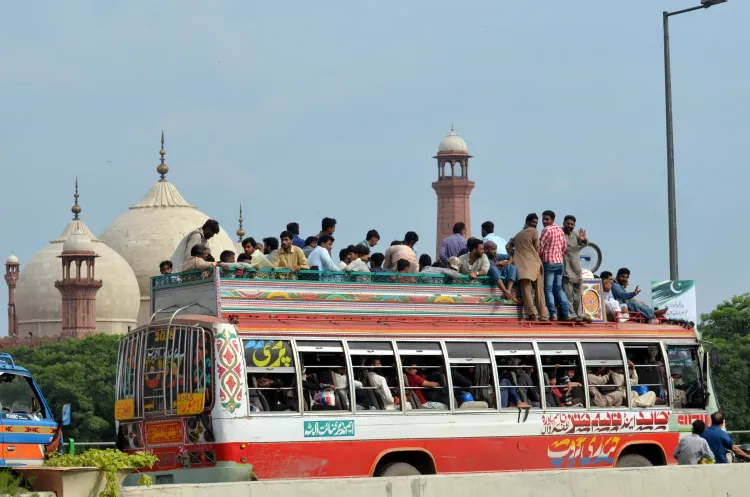Why is Pakistan’s Human Rights Commission Criticizing the Federal Budget?

Synopsis
Key Takeaways
- HRCP condemns the federal budget for failing low-income communities.
- Minimum wage remains unchanged, insufficient for families.
- Social sector allocations are below international standards.
- Government urged to focus on marginalized populations' rights.
- Need for robust public services highlighted.
Islamabad, June 19 (NationPress) The Human Rights Commission of Pakistan (HRCP) has launched a strong condemnation of the nation’s federal budget for 2025-2026, voicing serious concerns regarding its impact on the economic and social rights of the most at-risk communities.
"Formulated under a stringent austerity plan in line with IMF conditions, this budget provides minimal safeguards for low-income families already grappling with the ongoing inflation crisis from 2022 to 2024. While the government has slightly decreased income tax rates for salaried workers, this measure fails to restore the diminished purchasing power of working-class families," stated the HRCP.
"Even more concerning is the choice not to increase the federal minimum wage, which remains stagnant at Pakistani Rupee (PKR) 37,000 per month — a sum that does not cover the basic living expenses for a family of six," the statement remarked.
The organization pointed out that in provinces such as Punjab and Khyber Pakhtunkhwa, where the minimum wage has been raised to PKR 40,000, this increase is inadequate to offset losses in real income due to inflation.
The HRCP also emphasized that enforcement of wage laws in Sindh province is alarmingly poor, with about 80 percent of industries reportedly not adhering to minimum wage regulations, a pattern seen across the country.
"Allocations for crucial social sectors — health (0.96 percent of GDP), education (1.06 percent), and social protection (1.1 percent) — are significantly lower than international standards and regional comparisons. Countries like India, Sri Lanka, and Bangladesh allocate a considerably higher percentage of their GDP to these vital services," the commission declared.
HRCP Secretary-General Harris Khalique expressed disappointment with the Finance Minister's decision not to raise the minimum wage while announcing a "disproportionate increase" in salaries for parliamentarians.
Furthermore, HRCP Punjab Vice-Chair Raja Ashraf stated that ensuring access to healthcare and education is the state’s duty, while senior manager Feroza Batool described the budget as "anti-poor," noting its disproportionate impact on women.
"The effects of this budget on the economic and social rights of ordinary citizens require a thorough debate before it is approved," added HRCP treasurer Husain Naqi.
HRCP has called on both federal and provincial governments to reevaluate their fiscal priorities and ensure that economic recovery plans prioritize the rights and needs of Pakistan's marginalized populations.
"Without sufficient investment in public health, education, and a robust social safety net, the promise of equal citizenship remains unfulfilled for millions. The right to live with dignity cannot be compromised due to fiscal constraints — it must be at the forefront of our national agenda," stated the HRCP.









